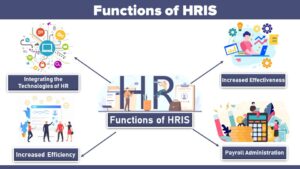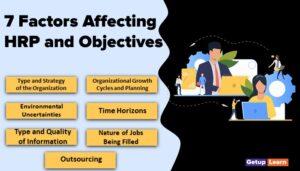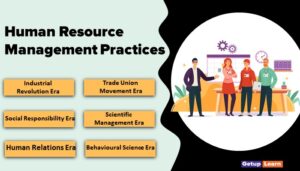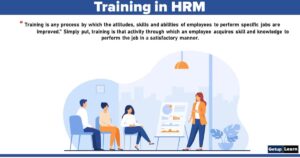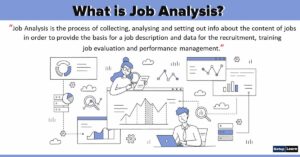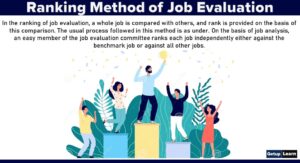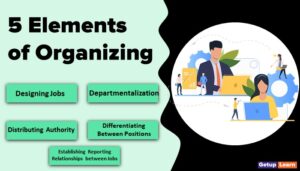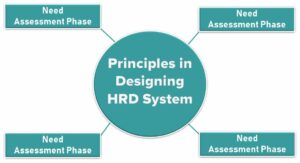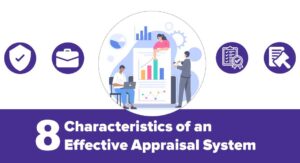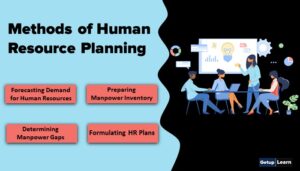Table of Contents
- 1 Why is HR so Important?
-
2 Roles of HR Manager
- 2.1 Policy Formulation
- 2.2 Advisory Role
- 2.3 Linking Pin Role
- 2.4 Administrative Expert
- 2.5 Housekeeper
- 2.6 Counselor
- 2.7 Welfare Officer
- 2.8 Legal Consultant
- 2.9 Social Roles
- 2.10 Recruiter and Hiring
- 2.11 Training and Development
- 2.12 Leadership Role
- 2.13 Coordinator
- 2.14 Welfare Officer Role
- 2.15 Mediator
- 2.16 Employee Champion
- 3 FAQ Related to Roles of HR Manager
Why is HR so Important?
In most big organizations, the human resource department is set up under the leadership of the human resource manager or personnel manager who is the expert in managing human resources. The human resource manager performs managerial as well as operative functions. Since he is a manager, he performs the basic functions of management like planning, organizing, directing, and controlling to manage his department. These are some of the roles of HR manager.
He has to perform some operative functions too like recruitment, selection, placement, training, appraisal, etc. He has to play multiple roles in the effective management of human resources and in achieving good human relations in the organization.
Ideally, the human resource manager should concentrate on dealing with human problems. Just as the finance manager assesses costs, the marketing manager emphasizes customers, the human resource manager is people-centered. Some of the important roles of HR manager of a human resource manager in an organization are discussed below:
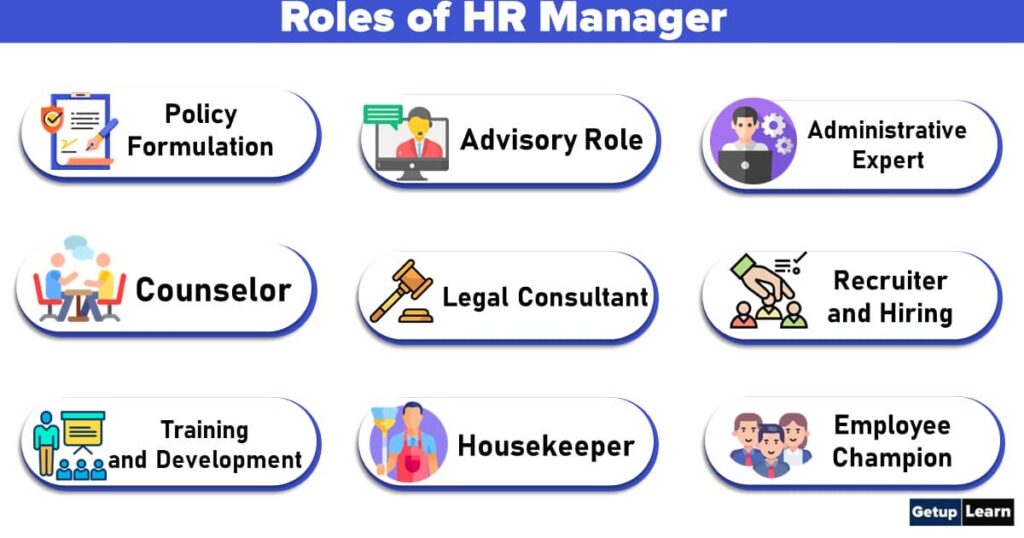
Roles of HR Manager
Human resource managers, nowadays, wear many hats. They perform mainly three different types of roles of HR manager:
- Policy Formulation
- Advisory Role
- Linking Pin Role
- Administrative Expert
- Housekeeper
- Counselor
- Welfare Officer
- Legal Consultant
- Social Role
- Recruiter and Hiring
- Training and Development
- Leadership Role
- Welfare Officer Role
- Mediator
- Employee Champion
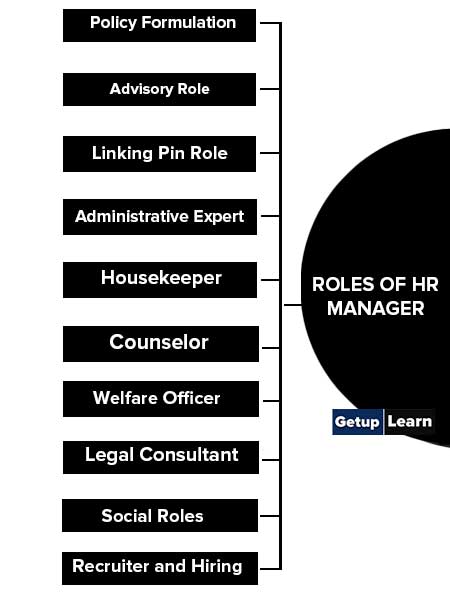
Administrative Roles
The administrative roles of human resource management include:
- Policy Formulation
- Advisory Role
- Linking Pin Role
- Administrative Expert
- Housekeeper
- Counselor
- Welfare Officer
- Legal Consultant
- Social Roles
Policy Formulation
Policy formulation is one of the important tasks of the human resource manager. He has to plan to overcome the recurring problems and anticipated problems in the area of human resource management.
The HR manager helps the top management in the formulation of policy on wages and salary administration, transfer, promotion, appraisal and welfare activities, etc.
Advisory Role
The Advisory role of the human resource manager is of crucial importance. Line managers are generally confronted with a variety of problems in their day-to-day operations. These problems may include grievances over the distribution of overtime work, annual increases in pay, transfer, promotion, disciplinary action, and so on.
In all such matters, a human resource manager can offer useful advice because he is familiar with the human resource policies and practices, labor agreements and labor laws, etc.
Linking Pin Role
The human resource manager attempts to achieve and maintain good industrial relations in the organization. He is responsible for setting up various committees on discipline, labor welfare, grievance, safety, etc.
He gives authentic information to the trade union leaders regarding the personnel policies and programs of the organization. He helps in redressing the grievances among the laborers. He also conveys the views of the trade unions to the top management. Thus, he acts as a linking pin between the management and the workers.
Administrative Expert
The administrative role of an HR manager is heavily oriented toward processing and record-keeping. Maintaining employee files, and HR-related databases, processing employee benefit claims, answering queries regarding leave, medical, and transport facilities, and submitting required reports to regulatory agencies are examples of the administrative nature of HR management.
These activities must be performed efficiently and effectively to meet changing requirements of employees, customers, and the government.
Housekeeper
The administrative roles of a personnel manager in managing the show include recruiting, pre-employment testing, reference checking, employee surveys, timekeeping, wage and salary administration, benefits and pension administration, wellness programs, maintenance of records, etc.
Counselor
The personnel manager discusses various problems of the employees relating to work, career, their supervisors, colleagues, health, family, social, financial, etc., and advises them on minimizing and overcoming problems if any.
Welfare Officer
The personnel manager is expected to be the Welfare Officer of the company. As a welfare officer, he provides and maintains (on behalf of the company) canteens, hospitals, crèches, educational institutes, clubs, libraries, conveyance facilities, co-operative credit societies, and consumer stores.
Under the Factories Act, Welfare officers are expected to take care of the safety, health, and welfare of employees. The HR managers are often asked to oversee if everything is in line with the company legislation and stipulation.
Legal Consultant
The personnel manager plays a role in grievance handling, settling of disputes, handling disciplinary cases, doing collective bargaining, enabling the process of joint consultation, interpretation and implementation of various labor laws, contacting lawyers regarding court cases, filing suits in labor courts, industrial tribunals, civil courts and the like.
HR manager looks to the welfare aspect of the employee viz., canteen, creche, rest-room, hospital, transportation, housing accommodation, school, etc. He’s one of the principal roles is to provide welfare facilities to the employees for their betterment and well-being.
Operational Roles
These roles are tactical in nature and include recruiting, training, and developing employees; coordinating HR activities with the actions of managers and supervisors throughout the organization, and resolving differences between employees:
- Recruiter and Hiring
- Training and Development
- Leadership Role
- Coordinator
- Welfare Officer Role
- Mediator
- Employee Champion
Recruiter and Hiring
Recruiter and hiring is a process of discovering sources of manpower and employing effective measures for attracting that manpower in adequate numbers to facilitate the selection of an efficient working force in an organization.
“Winning the war for talent” has become an important job of HR managers in recent times in view of the growing competition for people possessing requisite knowledge, skills, and experience. HR managers have to use their experience to good effect while laying down lucrative career paths for new recruits without, increasing the financial burden to the company.
Training and Development
These processes help in enhancing and enabling the capacities of people to build their strengths and confidence in order for them to deliver more effectively.
Apart from talent acquisition, talent retention is also important. To this end, HR managers have to find skill deficiencies from time to time, offer meaningful training opportunities, and bring out the talent potential of people through intrinsic and extrinsic rewards which are valued by employees.
Leadership Role
The human resource manager provides leadership and guidance to the employees and their groups. He ensures effective communication in the organization and influences the employees for extending their cooperation in attaining the organizational objective.
Coordinator
The HR Manager is often deputed to act as a linking pin between various divisions/departments of an organization. The whole exercise is meant to develop rapport with divisional heads, using the PR and communication skills of HR executives to the maximum possible extent.
Welfare Officer Role
The HR manager acts as a welfare officer in the organization. As a welfare officer, he is concerned with the provision of canteen, crèches, transport, hospital, and other welfare services for the benefits of workers and their family members.
Mediator
The personnel manager acts as a mediator in case of friction between two employees, groups of employees, superiors, and subordinates, and employees and management with the sole objective of maintaining industrial harmony.
Employee Champion
HR managers have traditionally been viewed as ‘company morale officers’ or employee advocates. Liberalization, privatization, and globalization pressures have changed the situation dramatically. HR professionals have had to move closer to the hearts of employees in their own self-interest. To deliver results they are now seriously preoccupied with:
- Placing people on the right job.
- Charting a suitable career path for each employee.
- Rewarding creditable performance.
- Resolving differences between employees and groups smoothly.
- Adopting family-friendly policies.
- Ensuring fair and equitable treatment to all people regardless of their background.
- Striking a happy balance between the employee’s personal/professional and the larger organizational needs.
What are the 5 roles of HR manager?
Following are the 5 roles of HR manager:
1. Policy Formulation
2. Advisory Role
3. Linking Pin Role
4. Administrative Expert
5. Housekeeper etc.
What are the duties and responsibilities of HR?
These some important duties and responsibilities of HR are:
1. Policy Formulation and Implementation
2. Housekeeping
3. Records Maintenance
4. Welfare Administration
5. Legal Compliance
6. Recruiter and Hiring
7. Training and Development
8. Leadership Role
9. Coordinator
10. Welfare Officer Role
11. Mediator
12. Employee Champion etc.

